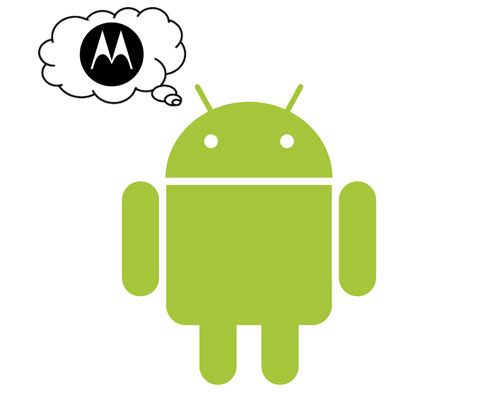
Google on Monday said it was buying Motorola Mobility for US$12,5bn in what most analysts are seeing as escalation of the software patents war with Apple and Microsoft. But the acquisition holds both opportunities and big risks for the world’s biggest Internet company.
The deal, which must still be approved by regulators, comes in the wake of Apple filing a number of patent infringement lawsuits against Samsung Electronics, HTC and Motorola, with the iPhone and iPad maker claiming the companies have copied its intellectual property.
Google’s smartphone operating system, Android, is also itself under attack from Microsoft, which claims that the software includes innovations it patented and is demanding licensing fees.
And Oracle is suing Google because it says the company uses the Java programming language heavily in the development of Android. Oracle acquired Sun Microsystems, which owns Java, in 2010 in a $7,4bn deal.
In June this year, Google, working in conjunction with Intel, failed to outbid Apple and Microsoft in an auction of patents owned by Nortel Networks. The Motorola deal will give it an important patent arsenal in the ever-spiralling legal battles with its rivals.
Carolina Milanesi, research vice president in Gartner’s mobile devices team, says there is “no doubt that patents were the main reason for the acquisition”. She says the deal puts Google in a much stronger bargaining position with regard to the current litigation in which it is embroiled.
“There are many patents pertaining to wireless technologies in Motorola’s portfolio … and it does give Google a little bit more ammunition to fight back.”
However, Milanesi says this doesn’t necessarily mean the lawyers are going to be any less busy. “The trend in the industry is to go to court. You’ll continue to see that,” she says.

The acquisition is risky for Google in that it could alienate other hardware manufacturers that have come to rely on Android for their smartphone and tablet offerings. Officially, Samsung, HTC, LG Electronics and Sony Ericsson have praised the acquisition, but Milanesi says it’s just “politically correct to welcome the deal”. They must be asking themselves if Motorola is going to become Google’s preferred partner for Android, she says. “Are Motorola devices going to get new features and operating system updates first?”
She doesn’t believe there’s much third-party smartphone manufacturers that use Android can do. Samsung, for example, couldn’t walk away even it wanted to. But it’s not all bad news for these companies. “Motorola isn’t suddenly going to move millions of units a quarter. It’s largely a forgotten brand and Google won’t be able to ramp it up overnight. Also, Google remains dependent on other vendors to get the volumes and international market penetration it wants.”
Milanesi says it will take months, if not years, to know if Google overpaid for Motorola Mobility. She says it depends how much Google believes it can save in court time and legal costs fighting patent battles with its rivals.
Arthur Goldstuck, MD of research house World Wide Worx, says the announcement is “astonishing” but it “shouldn’t have taken the market by surprise because one of the dilemmas Google has long faced is how to benefit from Android having let it loose in the industry”.
“Motorola’s Mobility division has languished for the last few years, but the launch of the Xoom tablet and the Atrix handset earlier this year was a big jolt for the industry because it showed the company could reinvent itself,” he says. Google could now become a “leader in both phone and tablet devices”.

Not unsurprisingly, Monday’s announcement set a fire under the share price of Motorola rival Nokia, which analysts believe may be ripe for a takeover offer, perhaps from Microsoft. Nokia has already chosen sides in the smartphone war, opting to use Microsoft’s Windows Phone operating system on many of its upcoming devices.
Goldstuck says there is “no doubt” Microsoft will make a hardware acquisition of its own. “Microsoft may not chase Nokia specifically, it may go after Research in Motion (RIM), or maybe even LG,” he says.
He cautions against fixating too much on the implications of Google’s acquisition of Motorola Mobility in the ongoing patent wars, saying it’s “more about what Android can do for Google’s bottom line through its now owning a hardware platform”.
However, the deal “insulates Google a little from the patent battles”, he says. “Motorola’s portfolio includes patents that greatly predate Apple’s. The roar of Motorola patents will drown out the bleating of Apple patents. Apple must be using some of Motorola patents and [so] Google can use this acquisition as a good lever to counter Apple’s future patent plans.”
Ryan Smit, digital consumer unit head at research and consulting firm BMI-TechKnowledge, says Google is going to “have to be careful” about not disadvantaging other manufacturers that rely on Android”. It needs to ensure they “feel confident about Android rather than tempting them to return to their own operating systems or create new ones”.
Smit says it’s also essential for Google to keep Motorola Mobility as a separate business rather than integrating it tightly. “Android’s openness is its biggest selling point and Google needs to act both as a developer pushing Android and now as a hardware player, too. It’s going to be a balancing act.” — Craig Wilson, TechCentral
- Subscribe to our free daily newsletter
- Follow us on Twitter or on Facebook




